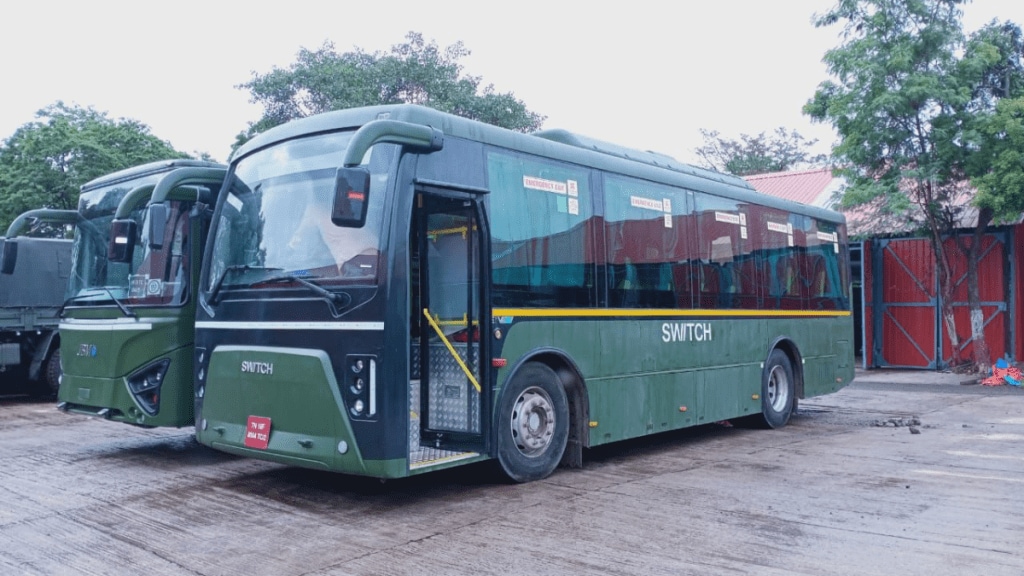In a significant move towards green initiatives, the Indian Army is set to procure 113 electric buses to enhance the transportation of troops. This effort underscores the Government of India’s commitment to achieving zero carbon emissions and marks a pivotal moment in the Indian Armed Forces’ journey towards eco-friendly transportation solutions.
According to sources in the defence and security establishment, “These 40-seater electric buses, designed to operate with an endurance of 250 kilometers, are intended for deployment in plains and semi-hilly areas.”
Adding, “Currently, they are undergoing trial stages for procurement, ensuring they meet the required standards and performance criteria.”
Who are the vendors competing for this?
“There are two vendors involved in this trial phase: Ashok Leyland and JBM, who are competing to provide the most efficient and reliable buses for the Army’s needs,” sources in the defence establishment confirmed to FinancialExpress.com.
Abiding by government’s environmental goals
Aligning with the global shift towards sustainable practices, this initiative exemplifies India’s leadership in leveraging indigenous capabilities to meet environmental goals. By adopting these electric buses, the Indian Army is not only reducing its carbon footprint but also fostering innovation within the defence sector.
Significance
The transition from traditional fuel-based vehicles to electric buses reflects the Indian Armed Forces’ commitment to a greener future. It showcases how national security and environmental stewardship can go hand in hand, demonstrating a balanced approach to modern challenges. This initiative is poised to inspire broader adoption of eco-conscious practices across different sectors, reinforcing India’s dedication to sustainability on a global stage.
Additionally, this move is expected to drive technological advancements within the country’s automotive industry. By promoting the use of electric vehicles, the Indian Army is encouraging manufacturers to innovate and improve the existing electric vehicle technology. This can lead to the development of more efficient, durable, and cost-effective solutions that benefit not just the defence sector, but also civilian transportation systems.
Furthermore, the deployment of these electric buses will likely lead to significant cost savings in the long run. With reduced dependency on fossil fuels, the operational costs associated with transportation can be minimized, allowing for better allocation of resources towards other critical defence needs. This financial benefit, coupled with the environmental advantages, makes the initiative a comprehensive step towards sustainable development.


